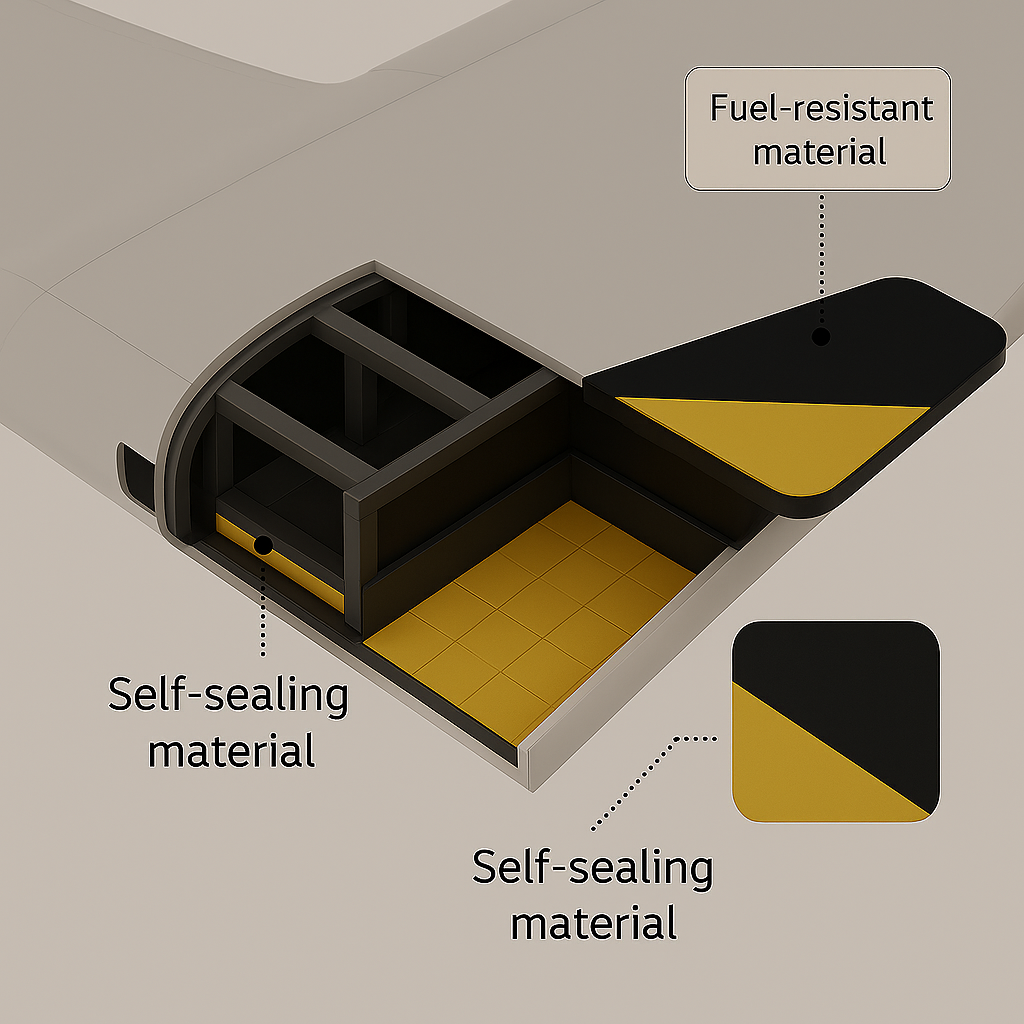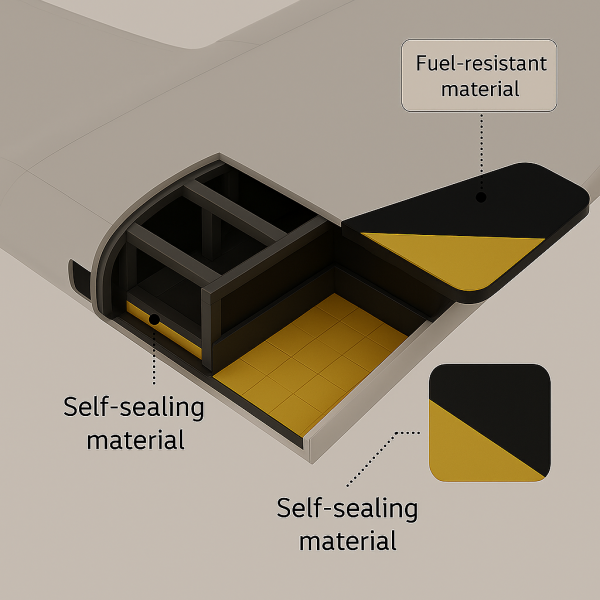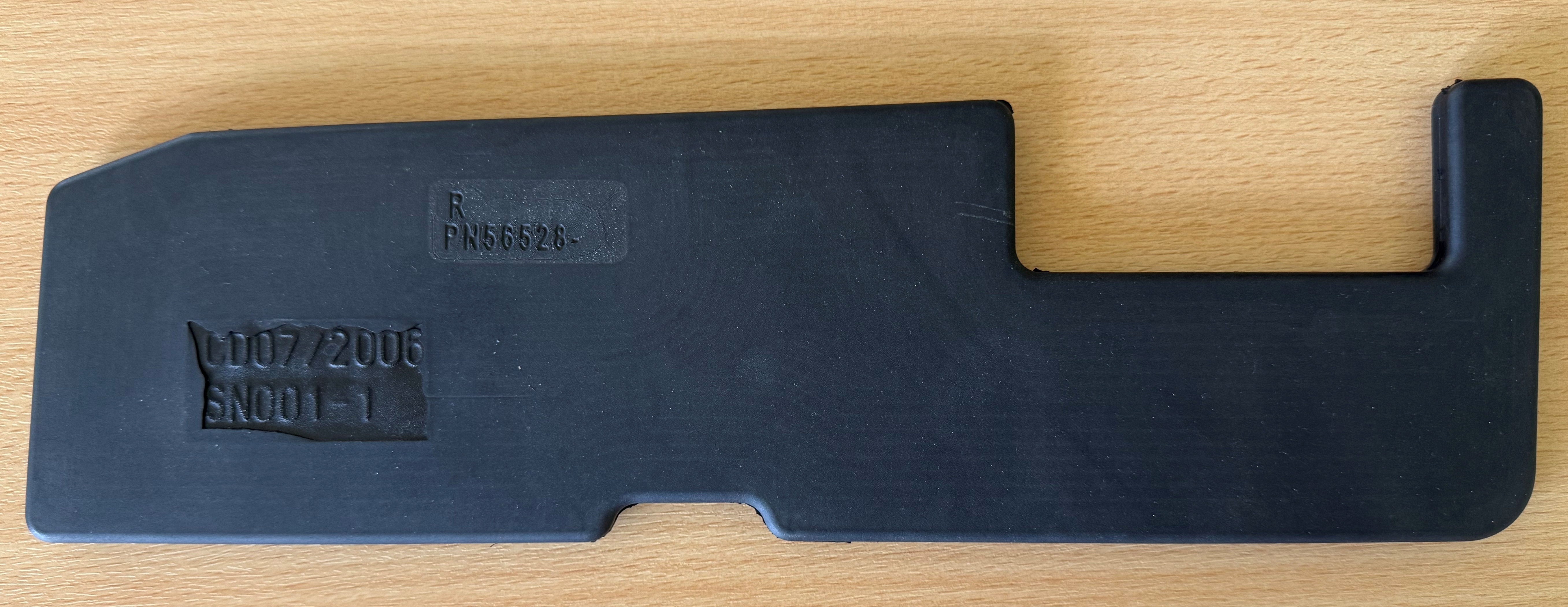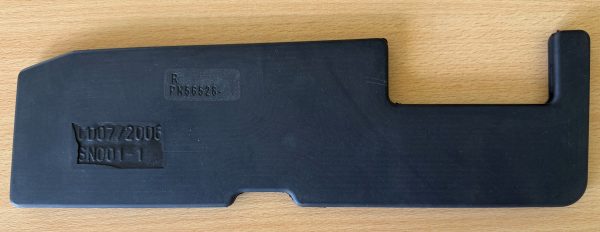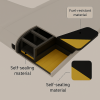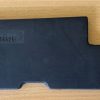Self-sealing block
The Pronal self-sealing block is designed to effectively protect fuel tanks integrated into aircraft wings or fuselage. In the event of ballistic impact, it reacts instantly. Thanks to its self-sealing technology, it seals any puncture caused by projectiles up to 7.62 mm. This prevents fuel leakage, thereby reducing the risk of fire, explosion, or loss of the aircraft.
The Pronal self-sealing block is designed to effectively protect fuel tanks integrated into aircraft wings or fuselage. In the event of ballistic impact, it responds immediately. Thanks to its self-sealing technology, it blocks any perforation caused by projectiles up to 7.62 mm. This prevents fuel leakage, reducing the risk of fire, explosion, or loss of the aircraft.
A concrete response to military aviation challenges
In operational contexts, aircraft are constantly exposed to threats. In particular, takeoff, approach, and ground support phases carry high risks. For this reason, the Pronal self-sealing block has been developed as an immediate passive protection solution.
Furthermore, its lightweight and compact design allows for easy integration into unused internal areas. It complies with international military standards and requires no modification to the original aircraft structure or fuel system.
An effective, field-adapted technology
Made from nitrile / NPVC, the self-sealing block uses polymer materials that can instantly reseal upon perforation. Unlike other systems, the self-sealing block is installed without contact with rivets, ribs, or internal tank components. As a result, it perfectly adapts to existing structures, whether in wings or fuselage.
Moreover, its design enables quick installation and simplified maintenance. By reducing risk without compromising aircraft performance, it is a strategic choice for air forces.
A key asset in high-risk zones
In conclusion, the Pronal self-sealing block offers enhanced safety while remaining easy to integrate. Thanks to its responsiveness, compatibility, and reliability, it is an ideal solution for protecting aircraft operating in hostile environments.
Technical informations
| Specifications | Value / Detail |
| Material : | Nitrile / Polyvinyl Chloride (NPVC) |
| Weight : | ~9,5 kg/m² |
| Operating temperature : | -40 °C to +71 °C (-40 °F to +159.8 °F) |
| Supported ballistic caliber : | Up to 7.62 mm projectiles |
| Fuel compatibility : | NATO F-35 (Jet A, Jet A1), F-34 (JP-8), F-40 (JP-4), F-44 (JP-5), F-18 (AVGAS 100LL), specific fuels (CNP08, QAV-1, TS-1 RT) |
| Additive compatibility : | NATO corrosion Inhibitors S-1747, S-1751; NATO antifreeze S-1745 |
You can not find your dimensions
Our design department employs the best project leaders and designers and will be pleased to develop and create a tailor-made product specially for your unique project.
